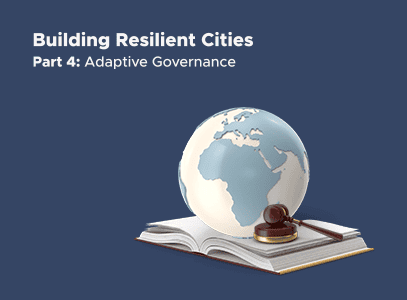Congratulations to this year’s John Bates Clark Medalist, Melissa Dell of Harvard University. The institutional economics literature plays an outsized role in the work we do at the Charter Cities Institute, and Dell stands as a leading figure in this area.
Institutions are powerful not just because they shape the world in which we currently live, but also because their effects persist long after they disappear. Dell shows this well in her 2010 Econometrica paper, “The Persistent Effects of Peru’s Mining Mita.” This paper uses historical data to show that districts in Peru that used the mita forced mining labor system between 1573 and 1812 see worse social and economic outcomes today than in districts where the mita system was never employed. Mita districts today are 25 percent poorer and see higher rates of stunted growth in children, compared with non-mita districts. Contemporary mita districts are less integrated into larger road networks and the incidence of subsistence farming is much higher.
Dell has also identified persistent effects of different village governance models in Vietnam. The northern part of the country historically had a strong centralized state that used villages as the main administrative unit. The south, on the other hand, was governed by a patron-client model based on informal personal relationships lacking an administrative base in the village. Dell finds that villages that lived under the northern system prior to French colonization are today better able to organize for public goods and economic redistribution through civil society and local government.
A third interesting paper by Dell examines the long-run impact of Dutch colonial institutions in Java. She finds that areas where Dutch sugar processing factories were established in the mid-19th century are more developed than in counterfactual areas where a sugar factory could feasibly have been established. The areas that had factories are wealthier, more industrialized, more educated, and have better infrastructure today than areas that did not have factories. Villages historically forced to cultivate sugar today have more village-owned land and see better educational outcomes. This paper demonstrates well that institutions established at a specific time for a specific purpose have long-run effects that the institution-builders could not possibly have anticipated.
This selection of Dell’s research provides an excellent window into the Charter Cities Institute’s thinking about the importance of institutional economics, particularly around labor markets and the structure of governance. First, labor markets function best when people are presented with choice, not coercion. The former can create growth while the latter creates poverty. The second lesson is that hierarchy and centralization matter for governing outcomes. While too much centralization of economic and political power produces bad outcomes, a clear path of authority and well-defined rules can help build state capacity and encourage economic growth.
We congratulate Professor Dell on her well-deserved Clark Medal and look forward to her future research and the work of other scholars inspired by her success. We hope that future scholars can look back at the impact of charter cities on growth and development, though we hope the impact will be obvious long before then.







